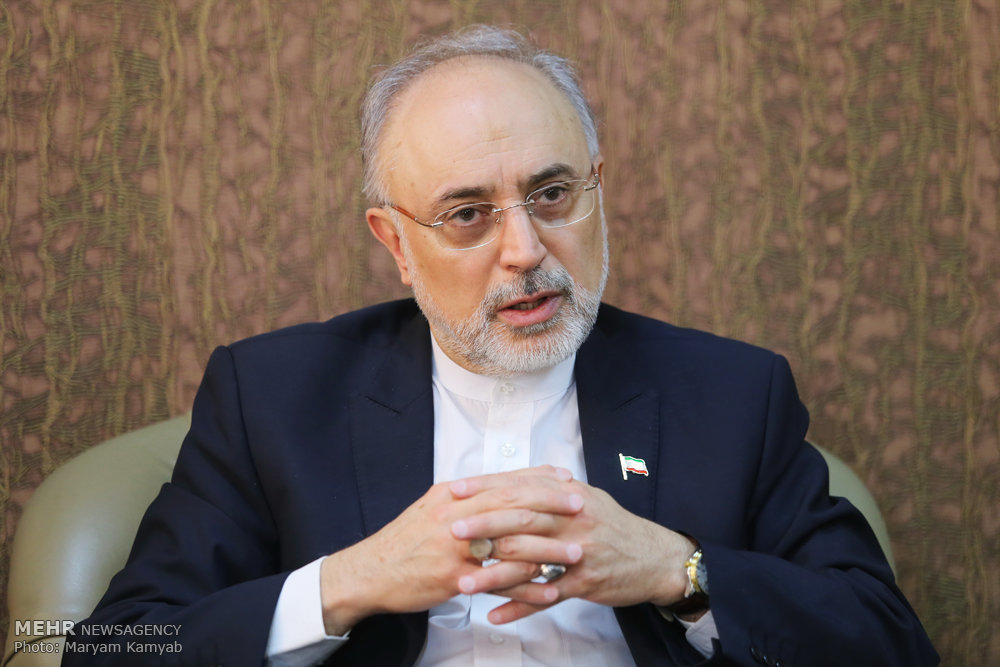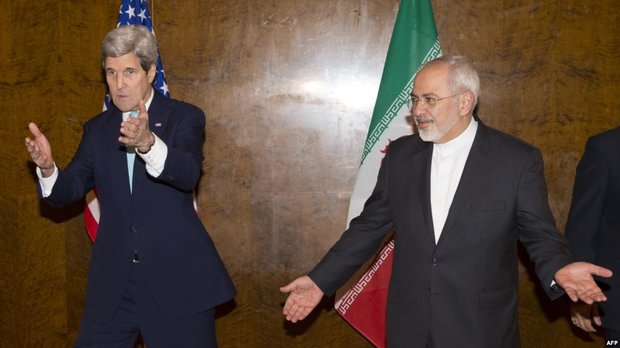Iran pushing for 5+1 meeting to address U.S. harassment

TEHRAN – Iran is trying to call a meeting of the foreign ministers of the 5+1 group – the five permanent members of the UN Security Council plus Germany - to address the Trump administration’s policy toward the nuclear deal on the sidelines of the UN General Assembly summit in New York, to be held September 12 to 25.
“Our foreign minister is likely to take action over convening a meeting of the foreign ministers of Iran and 5+1,” Ali Akbar Salehi, head of the Atomic Energy Organization of Iran, told reporters on Sunday.
“What I say is based upon the foreign minister’s recent letters to the director general of the International Atomic Energy Agency and the European Union foreign policy chief, which indicate the Foreign Ministry” is taking actions against “the harassing acts of Americans,” Salehi explained.
Nikki Haley, the U.S. ambassador to the UN, met with International Atomic Energy Agency officials in Vienna on Wednesday for what she described as a fact-finding mission, which is part of President Donald Trump’s review of the deal Iran made with world powers to curb its nuclear program in return for the lifting of sanctions.
After returning from Vienna, Haley said she had pressed the IAEA to seek access to Iranian military bases. There is the belief that the U.S. is pushing for access to information that Iran does not want it to have.
“We are encouraging the IAEA to use all the authorities they have and to pursue every angle possible” Haley said.
On Wednesday, the Washington Post said Iran’s Foreign Minister, Mohammad Javad Zarif, complained to IAEA Director General Yukiya Amano that Haley’s visit was intended to sow doubt about the nuclear agreement.
Reports by the IAEA have shown Iran to be in compliance with its landmark agreement with six major powers. The deal and a corresponding UN resolution are only related to Iran’s nuclear program. However, the U.S. is trying to wedge in Iran’s missile program as well.
In April, Trump ordered a review of whether a suspension of sanctions on Iran related to the nuclear deal - negotiated under President Barack Obama - was in the U.S. national security interest.

Iranian FM Mohammad Javad Zarif (R) still in office to protect his and former counterpart John Kerry’s (L) legacy, now harshly tested by a new administration in Washington. (Photo: AFP, April 2015)
The U.S. Treasury Department imposed new sanctions on six Iran-based satellite companies on July 28 after Iran launched the Simorgh (Phoenix) satellite carrier rocket into space a day earlier.
On August 15, President Hassan Rouhani in reference to the sanctions said that Iran will quit the nuclear agreement “in hours” and return to the previous stage if sanctions are re-imposed on the country.
A few days later, Salehi said that Iran can resume uranium enrichment to the purity of 20 percent in five days in the Fordow plant if necessary. The statement made it to the headlines around the globe.
Zarif also responded to the rising U.S. pressure, saying on Friday that any move of the U.S. to exert pressure on the International Atomic Energy Agency is “violation of the 2015 nuclear deal and independence of the IAEA”.
“We are sure that the IAEA is aware of regulations on its behavior as an international body and will not let its independence and status be undermined by the U.S. ambassador’s visit given terms of the JCPOA [the Joint Comprehensive Plan of Action] and mechanisms of monitoring Iran’s compliance to the deal,” he Zarif explained.
‘Iran will not cross its red lines in co-op with IAEA’
The most recent statements on Haley’s demand of the IAEA came Sunday when the Foreign Ministry spokesman said Iran’s cooperation with the agency will not take the country across its previously established “red lines”.
“We will pursue our course of cooperation with the International Atomic Energy Agency within the framework of our past obligations and we will surely not surpass the Islamic Republic of Iran’s red lines,” Bahram Qassemi said.
“We will not surrender to the excessive demands of certain governments,” the spokesman asserted.
“The agency, considering its level of independence and (role to have in) safeguarding its international stature, is unlikely to give in to the illogical and unrealistic demands that others may (try to) force on them.”
“We will not permit any entry into the zones forbidden under the JCPOA. The agency’s inspections will for sure be conducted within the frame of our internal policies,” the spokesman stated.
SP/PA
